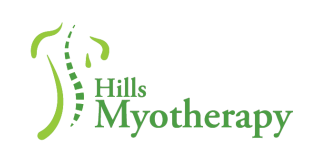
Improve, Restore & Maintain
Myotherapy is a branch of evidence-based healthcare involving the specialised application of a range of physical modalities to effectively assess, treat, and prevent muscular conditions that cause myofascial pain, injury, and dysfunction. Myotherapy aims to improve, restore, and maintain the normal integrity of the soft tissues of the body; increasing muscular strength, range of movement, flexibility, and reducing muscular pain.
In order to achieve this, our Myotherapist utilises specific soft tissue techniques such as:
When to see a Myotherapist
You should see a Myotherapist if you experience muscular aches and pain lasting longer than a few days, or when you're suffering from restricted movement. This may be following an injury or pain that has had a chronic onset.
Many people seek Myotherapy treatment in the rehabilitative phase of care, in conjunction with other healthcare providers, to help strengthen affected areas after injury, or as a means of injury prevention and continued maintenance.
Myotherapy is effective in the treatment of:
Myotherapy Consultation
An initial Myotherapy consultation typically involves a brief medical history, assessment of presenting injury, skeletal and postural assessment, range of movement testing, joint mobility; orthopaedic, neurological, and muscular strength testing, all with the aim of identifying the cause of your pain and determine the most effective treatment approach to ensure quick, effective and long lasting results.
Myotherapy is a branch of evidence-based healthcare involving the specialised application of a range of physical modalities to effectively assess, treat, and prevent muscular conditions that cause myofascial pain, injury, and dysfunction. Myotherapy aims to improve, restore, and maintain the normal integrity of the soft tissues of the body; increasing muscular strength, range of movement, flexibility, and reducing muscular pain.
In order to achieve this, our Myotherapist utilises specific soft tissue techniques such as:
- Myofascial Dry Needling.
- Myofascial cupping.
- Pain Education
- Trigger Point Therapy.
- Deep Tissue Massage.
- Transcutaneous Electrical Nerve Stimulation (T.E.N.S)
- Joint mobilisation.
- Myofascial stretching.
- Evidence-based corrective and rehabilitative exercises.
When to see a Myotherapist
You should see a Myotherapist if you experience muscular aches and pain lasting longer than a few days, or when you're suffering from restricted movement. This may be following an injury or pain that has had a chronic onset.
Many people seek Myotherapy treatment in the rehabilitative phase of care, in conjunction with other healthcare providers, to help strengthen affected areas after injury, or as a means of injury prevention and continued maintenance.
Myotherapy is effective in the treatment of:
- Strains and sprains
- Lateral Epicondylitis (tennis elbow) and Medial Epicondylitis (golfer’s elbow)
- Back pain and neck pain
- Headaches and migraines
- Muscular pain associated with pregnancy
- Carpal Tunnel
- Frozen Shoulder
- Plantar Fasciitis
- Fibromyalgia
- Shin splints
- Traumatic and overuse injuries
- Occupational, postural, recreational, and emotional stressors
- Incorrect ergonomics
- Pain relief from Morton's Neuroma
- Chronic neuromuscular and musculoskeletal illness disorders
Myotherapy Consultation
An initial Myotherapy consultation typically involves a brief medical history, assessment of presenting injury, skeletal and postural assessment, range of movement testing, joint mobility; orthopaedic, neurological, and muscular strength testing, all with the aim of identifying the cause of your pain and determine the most effective treatment approach to ensure quick, effective and long lasting results.

West Pennant Hills NSW 2125
Ph. 0409 043 564
www.hillsmyotherapy.com
Site powered by Weebly. Managed by iPage

